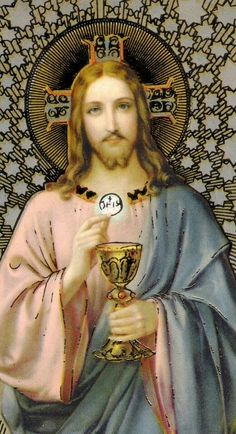The Mass, or liturgy, is the official public worship of the Catholic Church, offered to God the Father by both the head and body of the Church. It is offered by the head of the Mystical Body, Jesus, vicariously through His priest, who acts in “Persona Christi” (in the person of Christ). In union with the priest, offering the sacrifice of the Mass, are the “People of God”, Christ’s Mystical Body. This sacrificial act of worship to God the Father is the sacrifice of Jesus’ body and blood for the salvation of all humanity. This act of atonement, or “at-one-ment”, is how God has chosen to apply all the merits won on Calvary by Jesus for the sake of our salvation.

How can we receive the most out of our participation at Holy Mass? The answer is that we fix our intentions at the Offertory of the Mass. In the Offertory the priest offers bread and wine to be transubstantiated into the Body and Blood of Christ. In their natural state, the bread and wine represent the sacrificial offerings of the laity. Our prayers and sacrifices are placed upon the paten and poured into the chalice. God looks down upon the altar and sees our prayers and sacrifices upon that paten and in that chalice. Then, in the sublime moment of the consecration of the bread and wine is joined to it, our offerings, our intentions in union with the sacrificial offering of Jesus’ Body and Blood. Our sacrificial offerings are taken up to God.
We all have prayers we want answered. Perhaps we want to ask God for a particular favor for ourselves or someone we love. Perhaps we desire to ask God to make us saints or ask for the grace of a holy death, when our time comes. God wants us to bring to him our supplications, as well as adoration, thanksgiving and reparation. When we attend Holy Mass, should we all not desire to receive all the graces and blessings that our Lord so generously desires for us to receive by simply fixing our intentions at the Offertory? After all, when we eat or drink, will we eat or drink our fill using a sewing thimble? So why would we want to do the same when we attend the Mass, the Lamb’s Supper? Perhaps we should keep these things in mind by remembering a Russian proverb once told by a good priest to his congregation: “When you eat, use a big spoon.”
